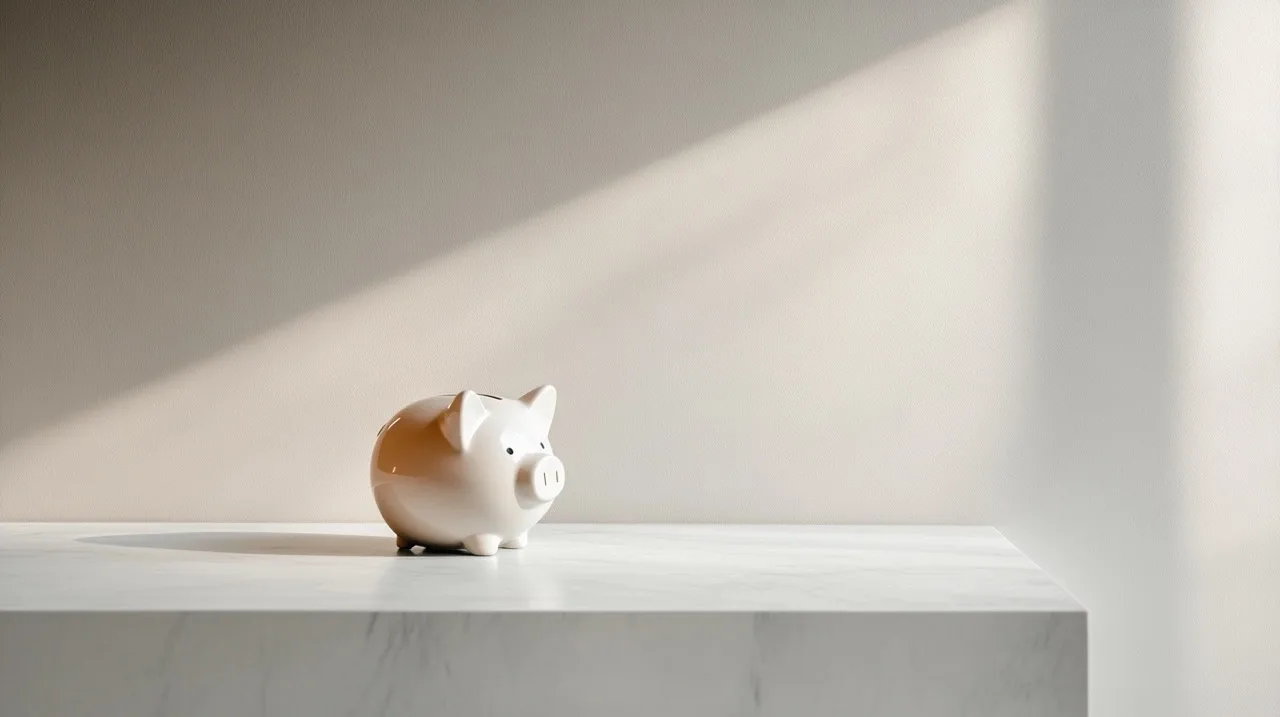It’s a Saturday and I have to scramble to clean the flat, get my nails done, fetch the weekend groceries before the shops close, and get dressed for a late afternoon garden party invite. I feel knackered already and my day off has barely started.
Do you often feel constantly on the go, striving to be productive, yet never feeling like you accomplish much? It’s common nowadays. We’re bombarded by so many cookie-cutter self-proclaimed gurus shouting from the rooftops about the importance of productivity, saving time, and self-improvement. But what if I told you that being unproductive could actually be good for your soul and your well-being?
The truth is, our society’s obsession with productivity is neither sustainable nor healthy. We’re constantly looking for productivity hacks and ways to improve ourselves. In doing so, we’re often neglecting the things that really matter to us.
Being unproductive, on the other hand, allows us to slow down, take a breath, clear some mental clutter and focus on the things that bring us joy and fulfillment. Or just focus on nothing at all.
So how can you embrace the art of unproductivity? It’s all about finding a balance between work and play, and learning to let go of the constant need to be productive. Let’s explore how to be unproductive for a change, and why sometimes ignoring your to-do list and being lazy for a bit might actually be doing more.
The Myth of Constant Productivity
We’ve all heard the expression “time is money.” It’s a common refrain in our society that places a high value on efficacy and efficiency. But have you ever stopped to think about the toll that constant productivity can take on your mental health and well-being?
The truth is, being unproductive can be good for your soul. It gives you time to rest, recharge, and reflect.
Why, then, is our society obsessed with self-optimisation and never-ending productivity hacks that make it seem like being unproductive is a sin?
The productivity movement has a long history, dating back to the early 20th century when industrialists like Frederick Winslow Taylor sought to maximise efficiency in the workplace. Today it’s the self-improvement influencers who tell us we need to be constantly working, learning, and improving ourselves to be successful.
The reality is that these expectations are unrealistic and unsustainable. They lead to burnout, stress, and a never-ending cycle of trying to do more, be more, be better.
How about we acknowledge that being unproductive is not a weakness? That it’s a necessary part of a healthy life?
Self-improvement gurus typically promote the idea of “hustle culture” – the belief that if you work hard enough, you can achieve anything. This mentality can be damaging though; it sets unrealistic expectations and can lead to feelings of guilt and inadequacy when we inevitably fall short.
Taking time to rest, reflect, and recharge can actually help you be more productive in the long run. Don’t fall for the myth of constant productivity. Instead, focus on finding a healthy balance between work and play.
The Side Effects of Over-Productivity
Another “bro” saying we’re all familiar with is “work hard, play hard.” Yet what happens when you work too hard and forget to play?
Over-productivity may seem like a positive trait, but it can have negative effects on your mental and physical health, as well as your relationships.

Mental Health
The constant pressure to be productive leads to anxiety, stress, and burnout. When you’re always striving to do more, it’s easy to forget to take care of yourself. You may neglect your mental health by not taking breaks or failing to foster good self-care habits.
The result? Increased levels of the stress hormone cortisol, which basically keeps your body in a state of high alert.
Physical Health
Over-productivity can also have negative effects on your physical health. When you’re constantly working, you may neglect your physical well-being by not getting enough hours of sleep a night, not exercising, or not eating well.
This can lead to chronic illnesses and orthopaedic issues.
Working long hours every day leads to physical exhaustion, too. The paradox is that the more you work, the less you get done because it’s difficult to focus and be productive when you’re in zombie mode.
Relationship Strain
An obsession with work can also strain personal relationships and family ties. When you’re always working, you may not have time for your loved ones or friends. You might not even have to time to make friends in the first place.
I know when I was heads down with my career in tech for over a decade, I failed to maintain my own friendships. Once I left the corporate world and came up for air, I realised I was pretty much all alone in my personal life. Not a great situation to be in.
Strained relationships or a lack of friends obviously leads to feelings of isolation and loneliness. Additionally, when you’re constantly stressed and exhausted from work, you can have a hard time really being present and engaged in your relationships.
The Benefits of Slowing Down and Embracing Unproductive Habits
We live in an era that continues to value puritan work ethics above most everything else. That makes it all too easy to feel guilty about feeling boredom, not squeezing in your workout after a 14-hour workday, not seeing a project to completion, or simply letting your mind wander during some unproductive time.
Embracing moments of stillness and spontaneity can be incredibly beneficial for your well-being though.

There are a few benefits to taking pause, clearing your calendar, or even wasting some time. I’m not speaking of mindless scrolling on Instagram, but rather, spending time with other human beings, taking a nap when you’re tired, going for a walk, or just discharging emotionally by looking out the window while you drink a cuppa.
Mental Rest: Our brains need time to relax and rejuvenate, just like our bodies do. Being constantly productive and “on” can lead to burnout and mental exhaustion – often without us even realising it. Accepting bouts of unproductivity helps give your brain the rest it needs to function at its best.
Creativity Boost: Many of our most creative ideas come when we are not actively trying to be productive. Giving yourself time to daydream, explore, and play can help stimulate your creativity and lead to breakthroughs in your work or personal life.
Holistic Well-being: Emphasising the balance of mental, physical, and emotional health is crucial for overall well-being. Permanently spreading yourself thinly isn’t sustainable; something will eventually have to give. Constantly striving to be productive will thus ultimately lead to neglecting other areas of your life. Prioritising your overall well-being ensures harmony in all facets of your life.
Quality over Quantity: Doing less – but with more focus and intention – can often lead to better results than trying to do everything at once. Embracing unproductivity can help you prioritise what’s important and focus your energy on those things, rather than doing a bunch of things in a half-arsed manner.
“Ok,” you say. You want to take time to relax and embrace unproductivity. You know your mind and body will thank you for it. But what’s the best way to manage a healthier work-play balance? Do you need to carve out time for laziness? And wouldn’t planning for unproductivity be a paradox in of itself?
How to Be Unproductive: Embrace Moments of Stillness and Spontaneity
Giving yourself permission to drop the load off your shoulders is really all it takes to embrace idleness. That might be easier said than done though, and this is where planning comes in. If you’re an A-type personality in particular like I am, you might need some actual structure around your downtime to get into the flow of loafing off.
Scheduled leisure time can definitely help your mental health. Setting aside time to do nothing lets you recharge and helps prevent burnout. I like to reserve two hours in the evenings just for me. Whether I choose to read, watch a movie or just flip through a fashion magazine, it’s my quiet time for tuning out, and I’ve found I sleep better when I unwind like this.
On the other hand though, resisting the urge to schedule every minute of your day is equally important. Unscheduled time allows for slackerdom, spontaneity and the freedom to do whatever you feel like in the moment.
Spontaneous decisions can also add joy to your day, whether it’s indulging in two-hour lunches, exploring a different route on your walk home from work, or lounging in the patio hammock instead of doing the weeding.
Engaging in mindful activities such as meditation or deeper breathing, reading, walking, or simply daydreaming without a specific goal can show you how to be unproductive in ways that help you relax and clear your mind. Dolce far niente – the sweetness of doing nothing – is incredibly rejuvenating.
Setting boundaries is also worth mentioning in this context.
Learning to say no and understanding that it’s okay not to be “on” all the time can help you avoid digital burnout and maintain a healthy work-life balance.
If you haven’t gotten into the habit yet of turning your work phone off after work, that’s a great first step in boundary setting, and one that is highly helpful in keeping your work and personal lives separate.
Ultimately, it’s important to let go of guilt. So many of us feel bad when we haven’t ticked off x number of tasks at the end of the day. We beat ourselves up when we forget to pick up the dry cleaning or don’t manage to finish writing the report for the boss.
Challenging this mindset and understanding that taking a break is essential for your well-being can help you feel more relaxed and at peace.
I have that party to get dressed for now. Right after I take a quick nap first. I’ll get there when I get there. And that, my friends, is how to be unproductive.












Leave a Reply